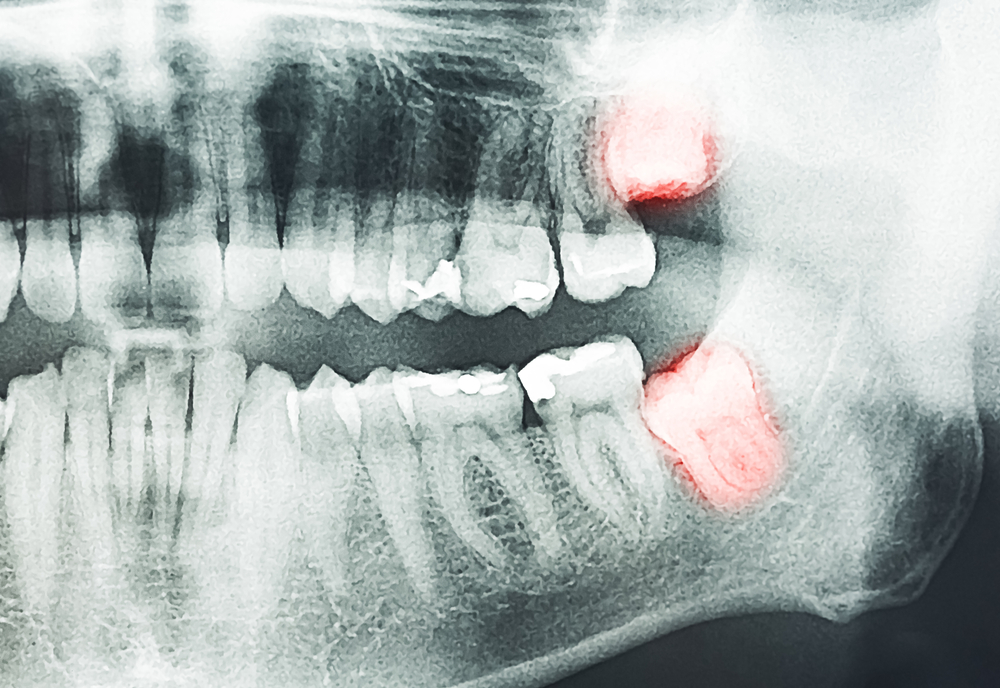Wisdom Tooth Removal
Wisdom Tooth Removal. When that third and last set of molars, known as wisdom teeth, begin to form and prepare to emerge, it's time to consider wisdom tooth removal. If you or your teenage to young adult child is beginning to get wisdom teeth or is experiencing dental health problems due to the development of these teeth, you need to speak with your dentist about wisdom tooth removal and determine if it is right for you.
With a procedure like a wisdom tooth removal, you need a dental facility you can depend on - one with qualified oral surgeons who have significant experience treating patients like you in their wisdom tooth removal and other oral health needs. Dr. John Martin Dental & Associates is equipped to perform expert wisdom tooth removal that promises a smooth recovery and protection from future dental problems. Contact us today to learn more or schedule your wisdom tooth removal appointment in advance. Reach us here.

Why We Need Wisdom Tooth Removal
We perform wisdom tooth removal largely as a preventative measure. When wisdom teeth grow in, they can crowd the mouth and lead to all sorts of potential problems. Wisdom teeth removal is used to prevent:
- Impacted wisdom teeth that aren't able to break through your gums because your jaw is not large enough to accommodate them
- Wisdom teeth that grow through your gums only part of the way. A layer of gum tissue can then grow over the teeth, becoming a pocket where food and bacteria can get trapped, inflaming the area and causing infection
- Impacted tooth complications that lead to such problems as infection, damage to other teeth or facial bones, an abscess, or a cyst
- A wisdom tooth or multiple teeth growing in at the wrong angle - the top of the tooth could face forward, backward, towards the inside of the mouth, or towards the cheek. This can be troublesome and lead to further dental issues and complications
If you did not undergo wisdom teeth removal when you were younger and your wisdom teeth grew in, wisdom tooth removal may still be a good option for you. In addition to preventing potential damage, infection, and dental hygiene trouble associated with these teeth, wisdom tooth removal can provide relief from:
- Pain
- Infection or gum disease
- Tooth decay in an erupted wisdom tooth
- Tooth or bone damage
- The development of a cyst near the wisdom tooth
- Difficulty in other orthodontic treatments attempting to straighten teeth
What to Expect in Wisdom Tooth Removal
When you and your dentist consider a wisdom tooth removal procedure, the first step is to gather information and determine the appropriate way to go about the process. At this point, you should do your research on wisdom tooth removal and compile any and all questions you have for your dentist. The procedure is generally very low risk, but there are potential complications to think about if you have an active mouth infection, immune system or other health problems, prescription medications, or if you are a smoker.
Your wisdom tooth removal dentist will take x-rays to see where the wisdom teeth are and decide on the best way to perform the procedure. The procedure itself is a quick outpatient visit, and patients are either given local anesthesia, IV sedation, or general anesthesia.
The wisdom tooth removal procedure:
- If necessary, the surgeon makes an incision in the gum to expose and access the wisdom tooth
- They will remove any bone that is blocking access to the tooth root
- Cut the tooth into sections to make it easier to remove
- Remove the tooth
- Thoroughly clean the site of the removed tooth, removing any debris or small pieces of the tooth or bone
- In some cases, stitch the wound closed
- Apply gauze to the extraction site to control bleeding and help the healing process
Wisdom Tooth Removal Recovery
As with any kind of procedure, each patient's recovery is unique. However, most patients will feel only slight pain and discomfort for about three to five days following the wisdom tooth removal procedure. It's important to closely follow your oral surgeon's instructions for care of the extraction site following the surgery. You may be prescribed something to help manage the pain. You will want to apply ice to reduce swelling, drink plenty of fluids and eat soft foods, and carefully clean the site to avoid bacteria buildup.
In most cases, after your wisdom tooth removal, you can return to living life as normal in just a few days, with no follow-up needed. However, you should contact the oral surgeon and update them if you experience anything troubling such as ongoing bleeding, a terrible taste, numbness, or dry socket inflammation after a few days.
Wisdom Tooth Removal Near You | Dr. John Martin Dental & Associates
Wisdom tooth removal is a common dental treatment that is used to prevent the significant issues that can come from the overcrowding and other complications of incoming back molar - or wisdom - teeth. When you are looking for a trustworthy, reputable dental office to take care of your wisdom tooth removal dental surgery needs, there's only one choice: Dr. John Martin Dental & Associates. Contact us today at our Maryland Heights office at (314) 739-1222 or our Gerald location at 573-764-2425.
